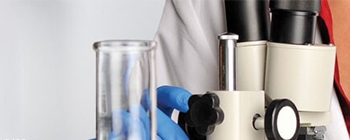Learn More
CD80 (B7-1) Monoclonal Antibody (2D10.4), PerCP-eFluor™ 710, eBioscience™, Invitrogen™
Mouse Monoclonal Antibody
Supplier: Thermo Fisher Scientific 46080941
Description
Description: The 2D10.4 monoclonal antibody reacts with human CD80 (B7-1), a 60 kDa member of the Ig superfamily. CD80 is expressed by activated B cells, macrophages and dendritic cells. In addition, activated T cells express this antigen. CD80 has high affinity for binding to two T cell surface antigens, CD28 and CD152 (CTLA-4). The interaction of CD28 and CD152 with CD80 is crucial in T-B cell communication leading to activation of T and B cells, respectively. Applications Reported: This 2D10.4 antibody has been reported for use in flow cytometric analysis. Applications Tested: This 2D10.4 antibody has been pre-titrated and tested by flow cytometric analysis of Daudi cell line. This can be used at 5 μL (0.5 μg) per test. A test is defined as the amount (μg) of antibody that will stain a cell sample in a final volume of 100 μL. Cell number should be determined empirically but can range from 10^5 to 10^8 cells/test. PerCP-eFluor™ 710 emits at 710 nm and is excited with the blue laser (488 nm); it can be used in place of PerCP-Cyanine5.5. We recommend using a 710/50 bandpass filter, however, the 695/40 bandpass filter is an acceptable alternative. Please make sure that your instrument is capable of detecting this fluorochrome. Fixation: Samples can be stored in IC Fixation Buffer (cat. 00-8222) (100 μL cell sample + 100 μL IC Fixation Buffer) or 1-step Fix/Lyse Solution (cat.
CD80 (B7-1) and CD86 (B7-2) are ligands of T cell critical costimulatory molecule CD28, and of an inhibitory receptor CTLA-4 (CD152). Both B7 molecules are expressed on professional antigen-presenting cells and are essential for T cell activation, and both molecules can also substitute for each other in this process. CD80 is rapidly induced on the surface of in vitro activated B cells, with Epstein Barr Virus (EBV) transformed B cell lines, with Burkitts lymphoma cell lines, with freshly isolated follicular B lymphoma cells, T cells, and monocytes. The B-lymphocyte activation antigen B7-1 provides regulatory signals for T lymphocytes as a consequence of binding to the CD28 and CTLA4 ligands of T cells. Diseases associated with CD80 dysfunction include gallbladder squamous cell carcinoma and myocarditis.Specifications
| CD80 (B7-1) | |
| Monoclonal | |
| 5 μL/Test | |
| PBS with 0.2% BSA and 0.09% sodium azide; pH 7.2 | |
| P33681 | |
| CD80 | |
| Affinity chromatography | |
| RUO | |
| 941 | |
| 4° C, store in dark, DO NOT FREEZE! | |
| Liquid |
| Flow Cytometry | |
| 2D10.4 | |
| PerCP-eFluor 710 | |
| CD80 | |
| Activation B7-1 antigen; B7; B7 protein; B7.1; B71; B7-1; B7-1 protein; B7-1 protein precursor; BB1; B-lymphocyte activation antigen B7; Cd28l; CD28LG; CD28LG1; CD80; Cd80 a rat homolog of the human CD28/CTLA - 4 ligand (B7-1); CD80 anitgen; CD80 antigen; CD80 antigen (CD28 antigen ligand 1, B7-1 antigen); Cd80 molecule; CD80 protein precursor; costimulatory factor CD80; costimulatory molecule variant IgV-CD80; CTLA-4 counter-receptor B7.1; LAB7; Ly53; Ly-53; MIC17; sCD 80; sCD80; secreted B7-1 protein precursor; soluble CD 80; soluble CD80; T-cell costimulatory molecule; T-cell co-stimulatory protein B7-1; T-lymphocyte activation antigen CD80; TS/A-1; TSA1 | |
| Mouse | |
| 25 Tests | |
| Primary | |
| Human | |
| Antibody | |
| IgG1 κ |
For Research Use Only.



